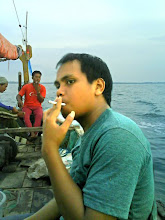
By Rumadi
Religious freedom in Indonesia is now under serious threat. On one hand we see a strong wave of Islamization as manifested by the formalization of Islamic law in several regions. On the other, we have witnessed discriminatory acts against groups that practice religious forms of expression outside of the mainstream. The latter cases are a serious violation of human rights and threaten the very foundations of the nation.
The attack on the Ahmadiyah complex in Parung, Bogor, West Java, by a hard-line Islamic group represents a serious threat to religious freedoms in this country. This violence is not the first to be experienced by Ahmadiyah followers. Before that, Ahmadiyah followers in West Nusatenggara and Kuningan, West Java, also suffered similar experiences. Their mosques were attacked and they suffered violence, both physical and mental.
The attack on Ahmadiyah is the most recent example of a growing intolerance of anything judged to be outside orthodox Islam and it is unlikely to be the last. In fact if we view events in recent months, the attack was part of a series of bigoted acts sanctioned by clerics here that all had a similar root; the persecution of those it was ruled had committed blasphemy.
A few months ago the rock band Dewa suffered a similar chastisement. The group was accused of undermining a symbol God and spreading more wrongs through its lyrics.
Accusations of blasphemy were also directed at an Islamic group, the Ngaji Lelaku community, who used two languages (Arabic and Indonesian) in the sholat prayer. That group was based in Malang and was led by imam Yusman Roy.
Roy who was only trying to teach his followers a good way of praying was arrested and was charged with committing blasphemy. His use of the two languages in the sholat was considered a criminal act.
A few weeks after Roy was brought to jail, another case involving blasphemy accusations occurred in Probolinggo, East Java. This time it was the ideas coming from a drug counselor at the Cancer and Drugs Rehabilitation Center. Thousands of people ransacked the complex because of what had been written in a book aiming to help addicts, “From Darkness toward Brightness”. Foundation head Ardhi Hussain and some of his assistants were arrested and his foundation was closed.
His followers, including small children were evicted from their premises and are now virtual refugees. The children were also accused of blasphemy and shunned – this is how the “sins” of the parents are visited on the children.
Because incidents involving blasphemy accusations are frequently occurring, one can strongly suspect that they are not spontaneous or unlinked. There is a grand plan behind them and those who are drawing up the scenario have so far fired their arrows at clear targets. I strongly believe that progressive Islamic groups will be the next targets.
If progressive Islam is attacked, the religious freedoms that are guaranteed in the Constitution will again be seriously threatened. However, the government seems hesitant to protect these religious freedoms. This can be seen from the hands-off way the state has dealt with these cases. The government and the security forces did not prevent attacks against places used by groups accused of committing blasphemy; their lack of action serving as an implicit approval.
This reality is in contrast with article 28 (e) of the Constitution which states (1) every citizen has the right to hold religious beliefs and pray according these beliefs, choose their education and form of teaching, choose their job, choose their citizenship, live in this country, leave and return to the country; (2) every citizen has the right to hold personal beliefs and express their thoughts and attitudes according to what they believe is right.
The article is in line with article 22 of the human rights Law No. 39/1999 which states: (1) Every citizen has the right to practice a religion and perform prayers according to their religion and beliefs; (2) The state shall guarantee the freedom of the citizen to believe in a religion and to practice their beliefs.
Article 8 of the law states: “Protection, development, enforcement, and fulfillment of the rights are the obligation of the government.
Under the law the government can not escape responsibility of protecting and guarantying religious freedoms; not only the freedom to hold a religion but also the freedom to practice it.
Therefore, the government must act firmly against all those that transgress this principle, because the action is not only a criminal action but also is a violation of the Constitution.
By taking firm action the public will consider that government has a commitment to safeguarding the Constitution and human rights principles.
In all cases of violence against religious groups, there has been the involvement of the Indonesian Council of Ulema (MUI). MUI has acted as if it holds supreme authority over religious matters. Sadly, the government has seemed to follow the ruling of the MUI and acted as if it did not have any interest in the fatwa issued by MUI.
The government must follow the Constitution and protect religious freedoms and the freedoms of people to practice their beliefs. At the same time it must take action against all those who violate the Constitution. Religious organizations like MUI must also follow the Constitution. They must not act as if they are the sole authority on religious affairs. MUI must become an organization of ulema that does not act against the Constitution. ***
The Writer is Lecturer in Faculty of Islamic Law UIN Syarif Hidayatullah Jakarta, Researcher The Wahid Institute Jakarta.
© 2005, GusDur.Net, All Rights Reserved




No comments:
Post a Comment